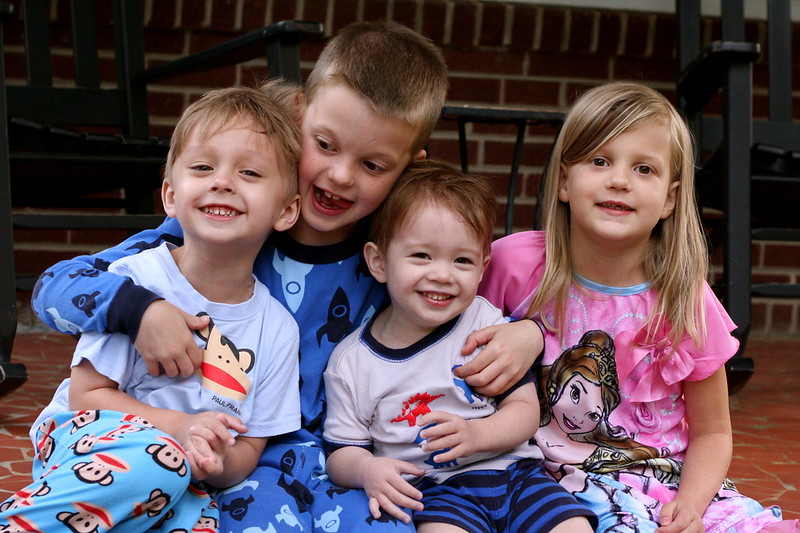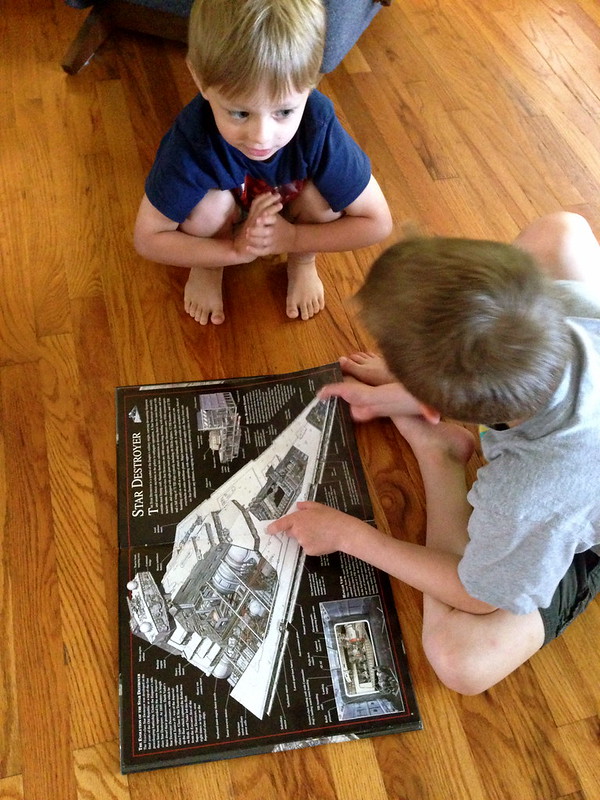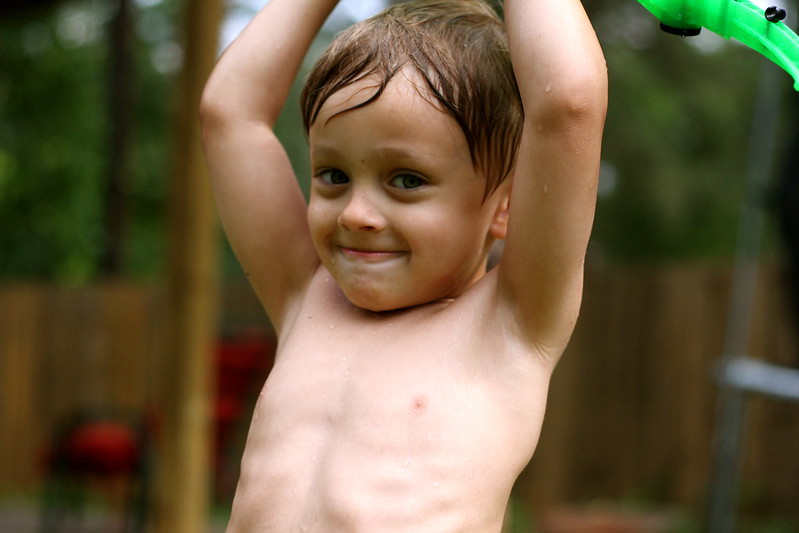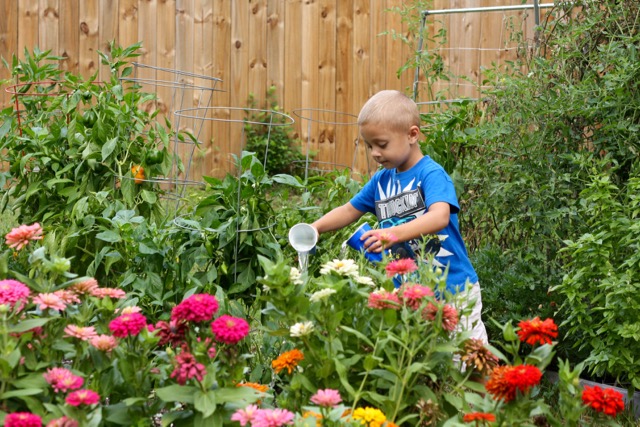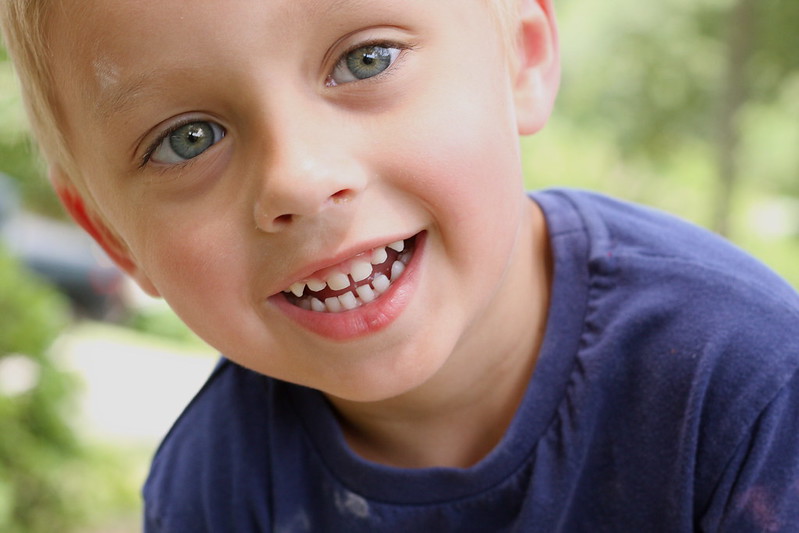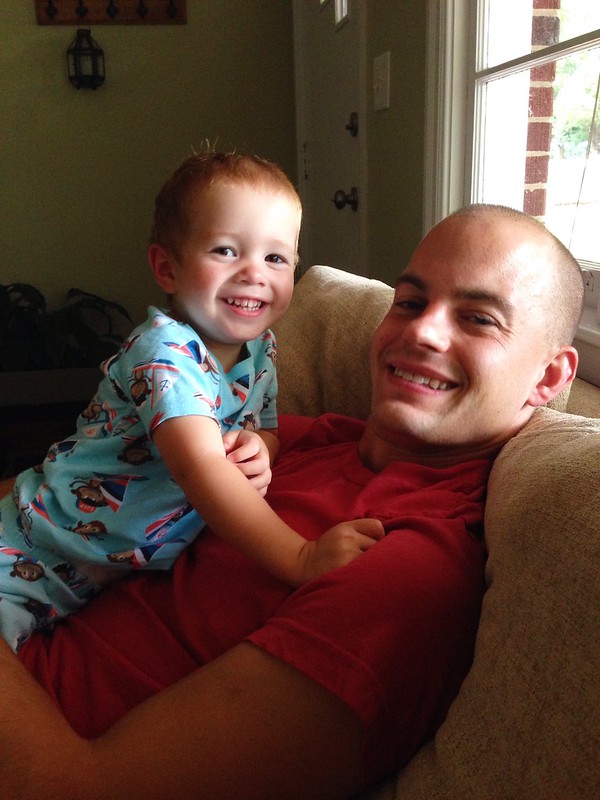lessons from 2 1/2 years of adoption, part 1.
This month we celebrate 2 1/2 years with Gabe and Noah.
If you’ve followed the blog for awhile, I imagine that this length of time has flown by. Remember when there were just four of us Gentino’s?
If you’re newer to the blog, you can find the first post about our adoption plans here, the post introducing our boys here, and our fuller adoption story here (which still makes me cry every time).
Gabe turned 4 the month after adoption, and has now lived with us a third of his life. And Noah, who was 2 at placement, has been in our life longer than he was without us. We still have an open adoption, and see their birth family several times a year.
People ask me if I feel like the time has flown. My answer is that the first year the boys lived with us felt like the longest year of my life. But after we made it through, yes, time picked up and flew.
One of my favorite descriptions of adoption is by author Rosaria Butterfield:
Wanted or not, adoption always starts with loss. Adoption always combines ambiguous loss with unrequested gain. An adopted child faces this paradox — this unrequested gain — at each developmental stage. His or her family must choose to either welcome the complexity or make the child go it alone. We choose to walk alongside our children, even as we don’t always understand how deep or how raw the complexity rests. This journey is frightful. At its core is this: do I love Jesus enough to face my children’s potential rejection of me?
I still have no fitting words of my own to describe what it feels like to bring two complete strangers into your home, forever, and begin to build a family together. Unlike falling in love and getting married, with adoption, you make this forever commitment before the feelings of love.
You act out your love, day after day, even when your insides are screaming and raw, and trust the mystery that the feelings will follow.
I thought our boys were as cute as heck from the first time I saw their photograph, but I was honestly not one of those adoptive moms who had the mushy love feelings from Day One.
But I’m here to tell you we have grown into our love. We’re still growing into it. And in a way it’s more beautiful for the crucible we passed through to get here. It’s beautiful because of the mystery.
I’m able to look back on our experience with a measure of perspective now. And I’d like to share a few things we learned through adopting our boys.
I realize that several of these lessons I’ve mentioned over the past couple of years. I guess this is my chance to have more of a birds-eye view, with 2 1/2 years of God’s faithfulness to show us more of what worked in our family. This is just our story. I’m no adoption expert; each situation is unique.
But here are a few things we learned, and are learning, things I tell my new adoptive friends when they ask for help.
Bonding and training are helped by a quiet, predictable routine.
This is mind-numbing. Truly. I like a quiet, predictable routine in general, but add two wild and rash little people who are grieving into that quiet routine and it feels like torture. Each hour is an eternity. You will want to jump in the van and drive. Anywhere. And fill your days doing anything to avoid the painfully slow minutes at home. You will want to turn the TV on all the time or pull out the iPad or tell everyone to go away and scroll through Instagram. You will want to escape.
But simplicity and being present pays off, and I’d do it again.
Routine helped our little boys feel safe, and taught them who their family is and where their home is. We also learned that the onslaught of normal attention from a family of four was tremendously over-stimulating for them. They were used to sitting in front of the TV all day. And suddenly here are people who make them sit at the table for meals and read books to them and take them to play in the backyard.
Those things feel mundane to our big kids; hours of that sort of attention were too much for our little guys in the beginning. It was taxing for them. They needed nice long afternoon naps for at least a year and early bedtimes. If we’d added lots of shopping and play dates and having people into our home into the mix it would’ve been a recipe for disaster (or at least more temper tantrums). We didn’t want to set them up for disaster: we wanted to set them up for success.
They needed to grow accustomed to normal, quiet home life in a family before they were strong enough to face lots of other activities.
Now they are fantastic. We can have a higher level of busyness in our life and they transition from activity to activity well. But I still check regularly for their tolerance level. If we miss too many days of quiet afternoon rest time or mornings at home they tend to spiral.
Respect and obedience precede relationship.
David and I weren’t exactly sure how we would go about disciplining Gabe and Noah when we met them. We wanted to sit back and get to know them a bit more. We wanted to focus our energy on attachment first.
Well, that philosophy lasted one week. And in the meantime, all hell broke loose. It’s amazing how quickly a child — even one who’s a complete stranger — can sniff out your weaknesses. The boys discovered they weren’t going to to get consequences for not minding us, and they turned the house upside down with their shenanigans and defiance.
All we wanted to do was spend time bonding with them. But we couldn’t. They wouldn’t stop long enough to let us — they were too busy upsetting bowls of cereal and laying on the floor crying and drawing on the walls and stealing their siblings’ toys to throw in the trash.
We realized in that week that there was going to be no attaching to an out-of-control toddler and preschooler until they understood who the authority figures in their life were.
And so we went back to the basics, exactly like we did when our biological children began blatantly disobeying us as one-year-olds.
We taught them to obey us.
We did not do this through long explanations or sermons. Young children can’t grasp those abstract concepts (I love the simple explanation in this parenting video). We taught them that they have to obey, “Because I said so.” If they disobeyed, we carried out the consequence. Over and over and over again. Those initial weeks and months spent mainly at home became very beneficial because this training was time-consuming and exhausting.
The boys were at first utterly shocked at the reality of discipline. But I’ll tell you: we saw an almost instant transformation. This did not mean that they listened to us and didn’t get their consequences many times.
But it was like the lights switched on in their brains and they suddenly saw us, as real people. People they needed to respect.
It’s difficult for me to explain to you the mystery of how obedience and bonding go hand in hand, but the only way I can understand it is that to really love someone you must respect them. If you don’t respect them — if you can manipulate and argue with and walk all over them — you will, deep down, despise them. They will be small to you. This is not a healthy way to live.
David and I needed to be big in Gabe and Noah’s world for them to feel safe and to grow their love for us. They were used to being in charge, to ruling their house by their behavior, to being guided by their emotions, looking out for themselves.
Over time, as we were consistent and firm and loving (and we did this imperfectly, of course), they began to relax into our home. They began to trust us. We weren’t their victims. They didn’t have the power to tyrannize our family. Their bad behavior didn’t concern us. We were the authorities in our home.
I can’t tell you how important this concept has been for our family.
Our young guys still don’t get long lectures; we give them a very few principles that they can understand. We still insist on first time obedience, “Because I say so.” No warnings, no threats. But we also explain to them: “Our home is a safe place for everyone.” And “We treat people with respect.”
So we don’t throw tempter tantrums. Ever. We ask for things nicely and say “thank you.” We do not argue with Mom and Dad. We don’t call our siblings names and speak to them sarcastically. We don’t destroy things, either our own or other people’s.
Of course this holds true for our big kids too. They are sinners just like the rest of us. Because we invested that time with them when they were young, we rarely have problems now that a simple conversation can’t solve. The energy in our home that might go into power struggles and back-talk and whining now goes into playing card games and discussing books and movies and playing dress-up.
In short, we can bond.
I’ve seen this commitment on my and David’s behalf set our boys (and Judah and Amie) up for success. I know it sounds strict. But what was the alternative? Chaos and frustration and resentment among family members. Needing to leave fun events or public places because of out-of-control behavior.
It took a lot of work, you guys. A lot of energy. With regards to our adopted children, I’ll say over these last years we’ve seen enormous improvement but the tide to return to old ways of behavior is still there. If we don’t consistently stay on top of behavior and follow-through our spunky guys love to push our buttons and see what they can get away with.
Part of that’s personality, part of it is that we’re still making up for lost years. This can still feel exhausting some days, like you can never truly let your guard down. But it’s still worth it. Our boys are happier when they obey. We’re happier when they obey.
If you’ve adopted and commit yourself to this process, I can promise you it pays off. Take heart! It’s some of the most important work you’ll do.
Not only is our home now a peaceful, enjoyable place (where no-one’s toys get thrown into the trash), but friends and family happily invite our boys over for play and sleepovers, and offer to babysit for us. This doesn’t mean they’re perfect, of course. But where people used to dread having them around, they now welcome them.
How can this be a bad thing for Gabe and Noah? I want them to have these experiences, to have friends and new adventures, to be a joy to those around them, just like God created them to be.
I’m so very proud of them because they have risen to the challenge. They are now strong enough on the inside to exercise self-control and be kind and friendly to people. They are funny and carefree and have a zest for life unmatched in our family. Truly, they are free.
Tomorrow, I’m back with Part Two of this series.
